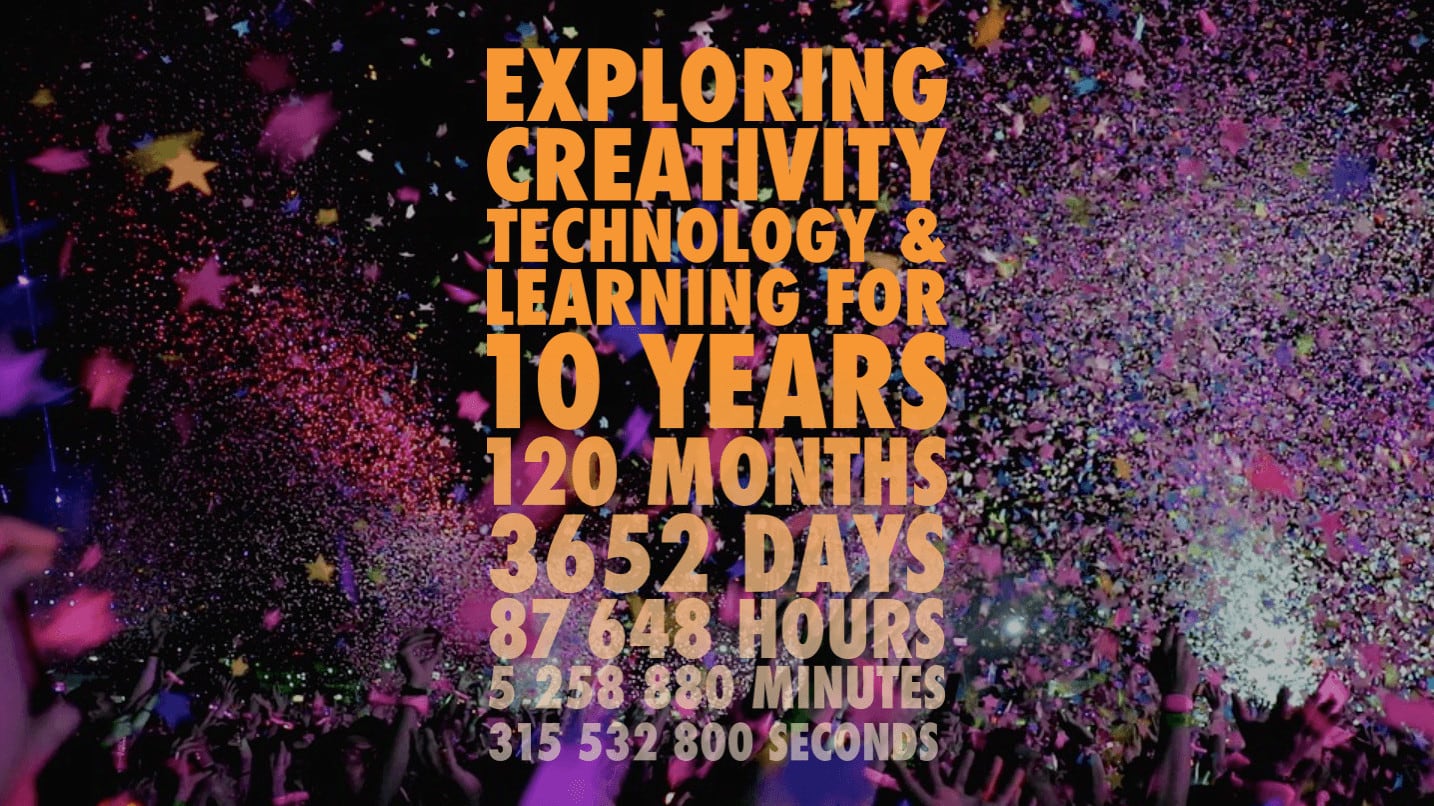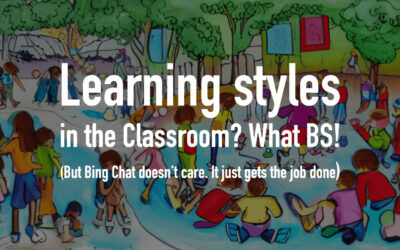10 years ago, we, the Deep-Play Research Group (DPRG), were invited to write a series for the journal TechTrends around the broad and intersecting themes of reimagining creativity, technology, and learning.
A decade is a significant chunk of time to devote to a series of articles, and we believe it is an achievement worth celebrating. This series has covered a lot of ground over the past decade, allowing us to explore these ideas from a variety of perspectives. Over the past 10 years, our team has evolved, influenced by changes in lives and careers. Some have stayed while others have moved on, with a few individuals joining us for just an article or two. There have been significant transitions over these years, as is to be expected, with people graduating, moving across the country to take on new challenges. There have been many personal accomplishments: promotions, weddings, child births and more. And through all these changes, one thing has stayed constant. We have, every two months (with just a couple of exceptions) written and submitted a piece to the journal, for a total of 57 articles. (A bit of math will tell you that over these 10 years we have missed 3 submissions!)
It has become a part of the rhythm of our lives. And it has changed us, individually and collectively.
In the first three years or so we discussed issues related to defining and measuring creativity, teaching creatively with technology, and a sub- series on transdisciplinary creativity. In 2016 we began a new phase, where each article focused on conversations with renowned creativity scholars with the goal of making their work more accessible to the TechTrends readership, as well as to connect their work to the broader themes that underlie this series. Thus, over the past 6-plus years we have had the pleasure of speaking with some of the most interesting and insightful thinkers and researchers in the field. Our aim, through this process, has been to capture the richness and diversity of approaches to understanding creativity and its relationship to learning and technology. In doing so we have, through these conversations, explored a range of perspectives on these issues: from psychology to neuroscience; from design to social justice; from organizational behavior to mindfulness. These conversations have brought home to us how deeply creativity is connected with our humanity, and how a coherent set of ideas and themes play out at multiple levels and contexts: micro and macro; personal and societal; disciplinary and interdisciplinary.
To celebrate 10 years of this series in TechTrends, we decided to do something different for our next two columns. In the first piece (citation and link given below) we decided to revisit the interviews, and asked each current member of the group to pick three (or four) of these interviews that connected with them, personally. This, we believe, provides both a personal look at these ideas, and in their collective, provide a broader story and set of themes that this series has explored over the years.
Keenan-Lechel, S. F., Warr, M., Richardson, C., Mishra, P., Mehta, R., Henriksen, D., & Gruber, N. (2022). A decade of rethinking creativity, technology and learning: Reflections with the Deep-Play Research Group. https://doi.org/10.1007/s11528-022-00817-7

A series like this does not happen by itself. A huge debt of gratitude to the editors of TechTrends, starting with Abbie Brown who first said yes to the idea, and then continuing through Dan Surry and Charles Hodges. This series would not have been possible without their support.
A huge shout-out to Danah Henriksen, who, started out co-leading the group, and then over the past 5+ years has been the de-facto leader of the team, keeping us on task, stepping in when things seemed to be going a bit haywire, and ensuring we meet our deadlines.
And last but not the least, ALL the authors who have been part of this journey. Each of them brought their own unique passions, interests and perspectives to the work and enriched us all, in the process. The members of DPRG have shifted over the years, as people move on to bigger and better things. All the individuals who have contributed to this series are listed below, in alphabetical order, with the names of currently active members in bold):
Liz Boltz, William Cain, Carolina Torrejón Capurro, Michael DeSchryver, Kristin DeBruler, Kristin Elwood, Matthew Evans, Chris Fahnoe, Jon Good, Natalie Gruber, Danah Henriksen, David Hicks, Megan Hoelting, Elizabeth Jungkind, Sarah Keenan-Lechel, Matthew Koehler, John Lee, Rohit Mehta, Daniel Memmert, Punya Mishra, Carmen Richardson, Sandra Sawaya, Shagun Singha, Colin Terry, Laura Terry, Melissa Warr, and Aman Yadav.
A toast to the past 10 years and hopefully 10 more years to come…






0 Comments